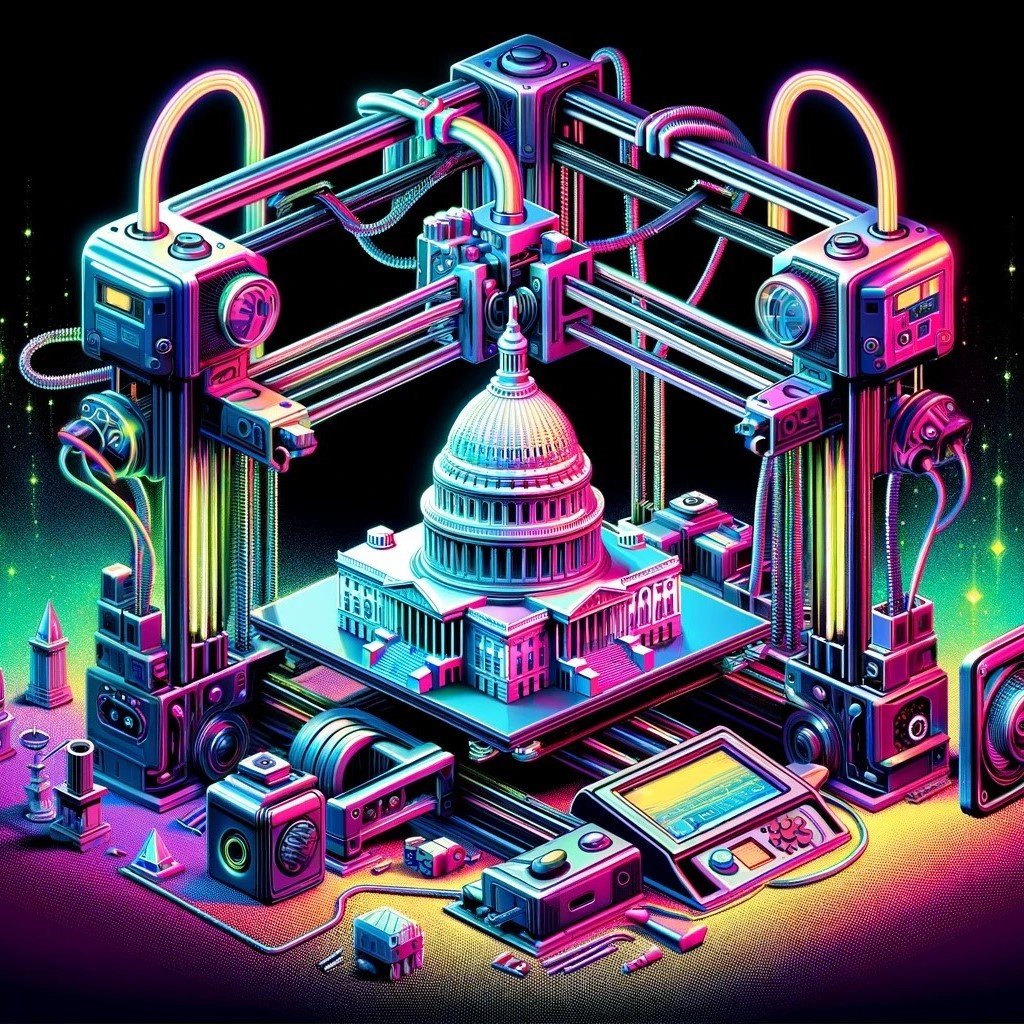Staff now have dedicated coworking spaces for collaboration.
Why This Matters
Effective legislating is built on collaboration, consensus building, and fostering relationships. However, until 2024, there was no dedicated, staff-only space within the House Office Buildings where staffers could meet to discuss ideas and work on solutions together.
During the pandemic, the front door to Members’ DC-based offices, lining the hallways of the House Office Buildings, trended toward being shut, a visual reminder of an enduring culture shift within the House Office Buildings that created physical barriers to staff getting to know one another, finding mentors, and collaborating on legislative proposals to benefit all Americans. The only neutral ground found on campus where collaborative meetings could take place were in the bustling and loud cafeterias and on-campus cafes, not the most conducive settings for productivity.
How It Happened
Recognizing that staff could benefit from a work-centric, professional, quiet, and off-the-record place where they can meet, the Select Committee on the Modernization of Congress made recommendation #130, which called on the House to “explore bipartisan coworking spaces for staff.” In early 2024, the Committee on House Administration’s Subcommittee on Modernization implemented the recommendation with the unveiling of the House’s first staff-only collaboration space located on the fourth floor of the Cannon House Office Building. Shortly thereafter, an additional collaboration space was set aside for staff (also located on Cannon’s fourth floor).
The Impact
On a campus that is already pressed for space, Members’ work to prioritize finding dedicated places for staff to meet one another and collaborate on legislation is notable. The creative solutions of transforming the end of a hallway into a modern-feeling, off-the-record working space is exemplary of the creative, innovative thinking that the Select Committee on Modernization fostered and that Members on the CHA ModSub continue to champion.
Next Steps
As these bipartisan coworking spaces continue to take shape and become established as official resources for staff to utilize, the House should continue proactive marketing campaigns to spread awareness of their existence to new and existing staff. Additionally, the House should collect feedback from staff on what they think of the spaces, how the environments could be improved, and what additional functionality could be explored to ensure these new spaces are fulfilling their greatest potential to attract staff use and foster collaboration. Furthermore, the Senate should look to establish similar space for inner- and cross-chamber collaboration.
Glossary
ADA = Americans with Disabilities Act
AOC = Architect of the Capitol
CHA = Committee on House Administration
CAO = House Chief Administrative Officer
CDTF = Congressional Data Task Force
COLA = Cost-of-Living Adjustment
CPF = Community Project Funding
CR = Continuing Resolution
GAO = Government Accountability Office
GAO STAA = The Government Accountability Office’s Science, Technology Assessment, and Analytics team
GenAI = Generative Artificial Intelligence
HIRO = House Intern Resource Office
HDS = House Digital Service
LIS = Legislative Information Service
LLM = Large Language Model
MIA = Modernization Initiatives Account
ModCom = The House Select Committee on the Modernization of Congress
ModSub = Subcommittee on Modernization (ModSub) within the Committee on House Administration
MOU = Memorandum of Understanding
NMO = New Member Orientation
OCWR = Office of Congressional Workplace Rights

